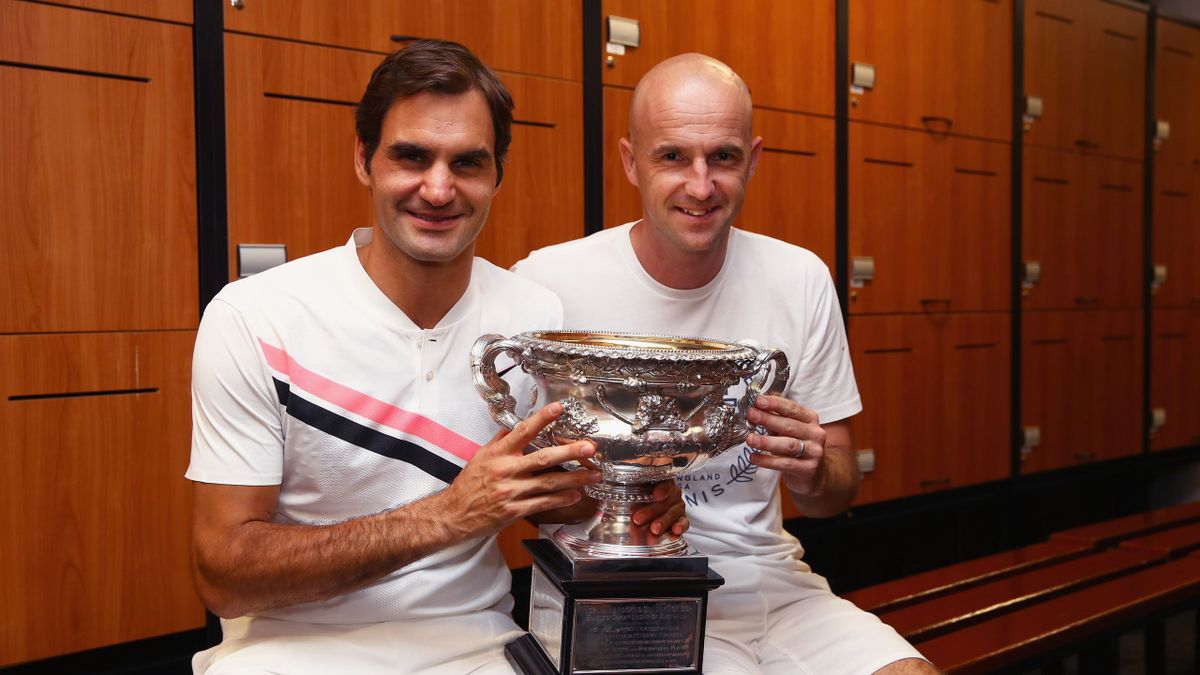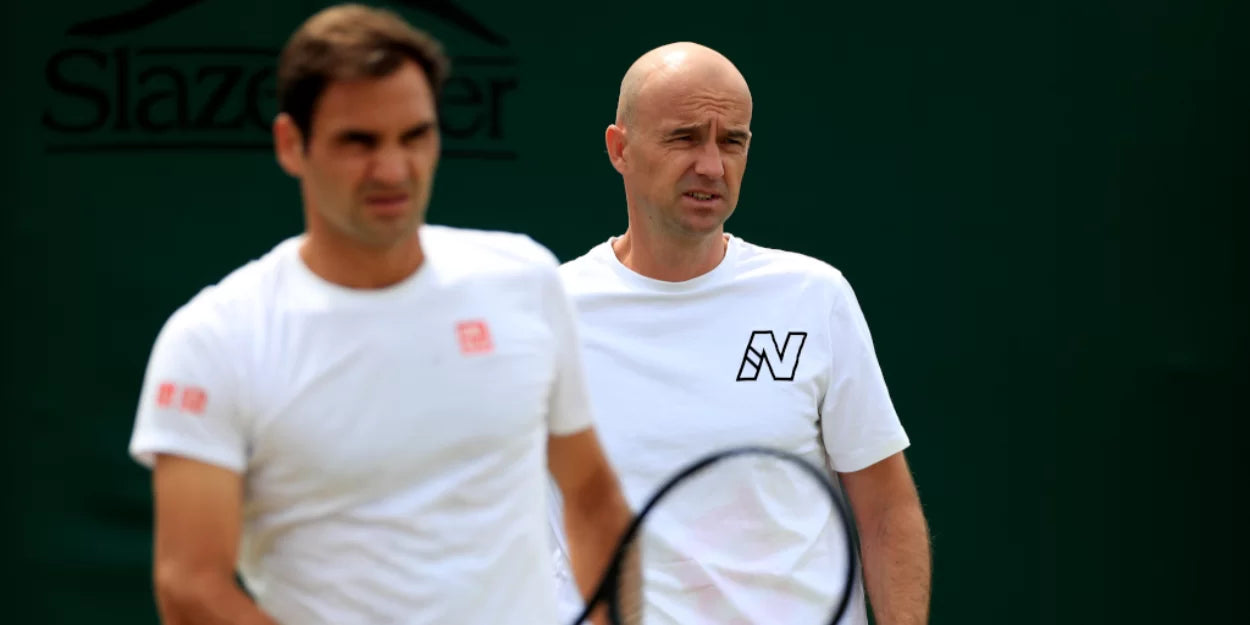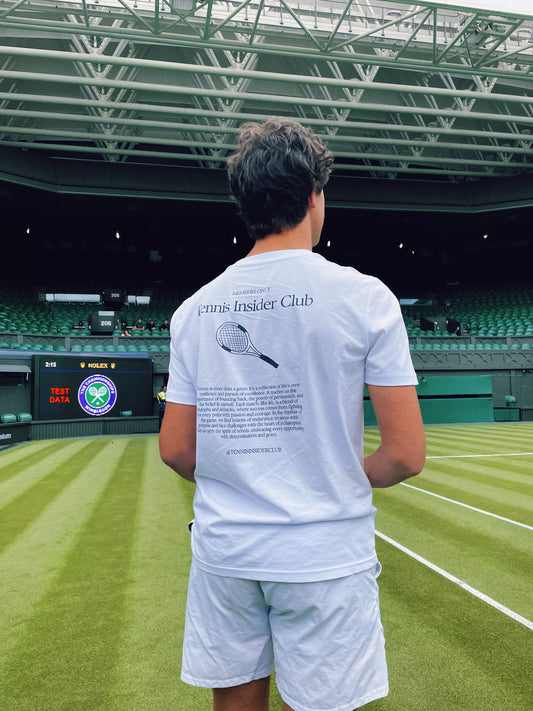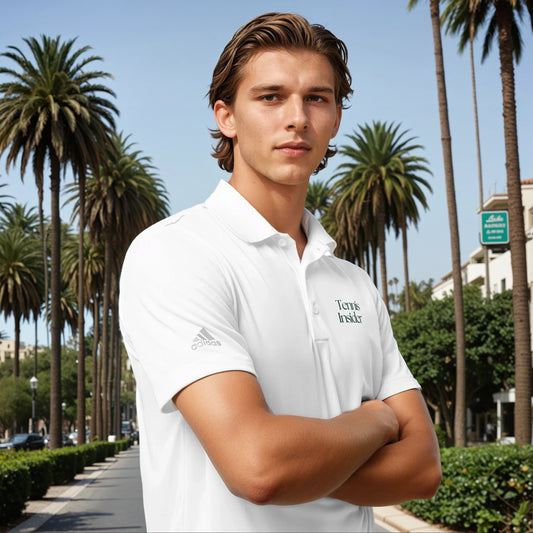There’s a reason Roger Federer credits his parents for his enduring success. It’s not just about early encouragement or unwavering support—although those are critical—it’s about something subtler: the ability to adapt. Former tennis pro and coach Ivan Ljubičić, who played a key role in Federer’s later career, believes that the magic of parenting lies in understanding how to evolve alongside your child.
“Parents are the most important part of a young athlete’s life, up until a certain age,” Ljubičić explains. “But the role of a parent isn’t static. The father of a 12-year-old, a 16-year-old, and a 25-year-old cannot be the same person.” This nuanced take is a masterclass in what it means to support, empower, and, ultimately, let go.

Andre Agassi, with his father, Mike Agassi.
The Balancing Act: Support Without Control
One of the hardest things for parents to do, according to Ljubičić, is to recognize the delicate balance between guiding their children and allowing them the freedom to grow. He recalls the incredible job Federer’s parents did in stepping back and letting Roger chart his own path. “It’s not about disappearing,” Ljubičić says. “It’s about changing your role. If you protect them too much, they’ll still be babies at 30. And if you control everything, they won’t learn how to make decisions on their own.”
Ljubičić emphasizes that making mistakes is not just inevitable—it’s essential. “You can’t learn by always doing what others tell you to do. Sure, you’ll learn a little bit, but the real growth happens when you make decisions, fail, and figure out what to do next.”
He draws a powerful analogy: “I’ve watched hundreds of Real Madrid games, but that doesn’t mean I could coach Real Madrid. The same principle applies to parenting in sports. Just because you’ve been there, doesn’t mean you know how to manage every aspect of your child’s journey.”
Empowering Children: Giving Power Without Losing Control
A recurring theme in Ljubičić’s philosophy is empowerment. He points out that many parents struggle to relinquish control because they fear their children will falter. “It’s not about losing control; it’s about helping them grow. The best thing you can do as a parent is to give them the tools to make their own decisions and support them when they fail.”
This lesson applies beyond tennis. Whether your child is a budding athlete, an aspiring artist, or a future surgeon, the principle remains the same. Ljubičić shares a personal example: “If my son becomes a surgeon, am I going to tell him how to operate or which patient to take? Of course not. My role is to trust in his abilities and surround him with quality people who can guide him in their area of expertise.”

Serena Willians with her sister, Venus, and their father Richard.
Experience vs. Objectivity: A Parent’s Blind Spot
One of the challenges Ljubičić highlights is the difficulty of remaining objective when you’re emotionally invested in your child. “I’ve seen 30 generations of 15-year-olds during my career,” he says. “That perspective allows me to notice patterns and anticipate pitfalls. But when it comes to my own son, it’s different. It’s hard to stay objective because you’re too close.”
He admits this emotional proximity can sometimes lead to frustration. “I hate myself when I get upset with him. That’s why I avoid stepping into the role of coach. I’m his father—that’s a big enough responsibility. The healthiest thing I can do is let the coach be the coach and focus on being there for him when he needs me.”
Parenting Lessons from Federer and Nadal
Ljubičić draws inspiration from the way Federer’s and Nadal’s parents managed their roles. “Roger’s parents understood exactly when to step back and let Roger take ownership of his career. Rafa’s parents did the same. It’s about trusting the process and knowing when to let go.”
This approach isn’t easy, especially for parents who are experiencing the journey for the first time. “What I see a lot is parents saying, ‘I’d rather make the mistake than let someone else make it.’ But the truth is, people who’ve seen 30 generations of young athletes are more likely to make fewer mistakes than someone going through it for the first time.”

Roger Federer celebrating his Wimbledon championship with his parents.
The Power of Staying in Your Lane
Ljubičić’s advice for parents boils down to one key principle: know your role and stick to it. “If you’re a parent, focus on being the best parent you can be. Don’t try to be the coach, manager, or agent. Surround your child with quality people and trust them to do their job.”
He shares a poignant reflection: “At the end of the day, your child knows you’re there for them. That’s what matters. Whether they win or lose, succeed or fail, your role as a parent doesn’t change. You’re their constant, their foundation. That’s a pretty big responsibility on its own.”
The Takeaway: A New Blueprint for Parenting in Sports
Ljubičić’s wisdom is a call to action for parents to rethink their approach to supporting young athletes. It’s not about being hands-off or overly involved—it’s about adapting, empowering, and trusting.
He leaves us with a final thought: “The most important thing you can do as a parent is to help your child grow into an independent, confident person. That doesn’t mean protecting them from every failure or guiding every step of the way. It means giving them the freedom to make mistakes, the tools to learn from them, and the unconditional support to know you’ll be there no matter what.”
In a world where success is often equated with control, Ljubičić offers a refreshing perspective. Parenting isn’t about holding on—it’s about letting go, and in doing so, giving your child the wings to soar.









